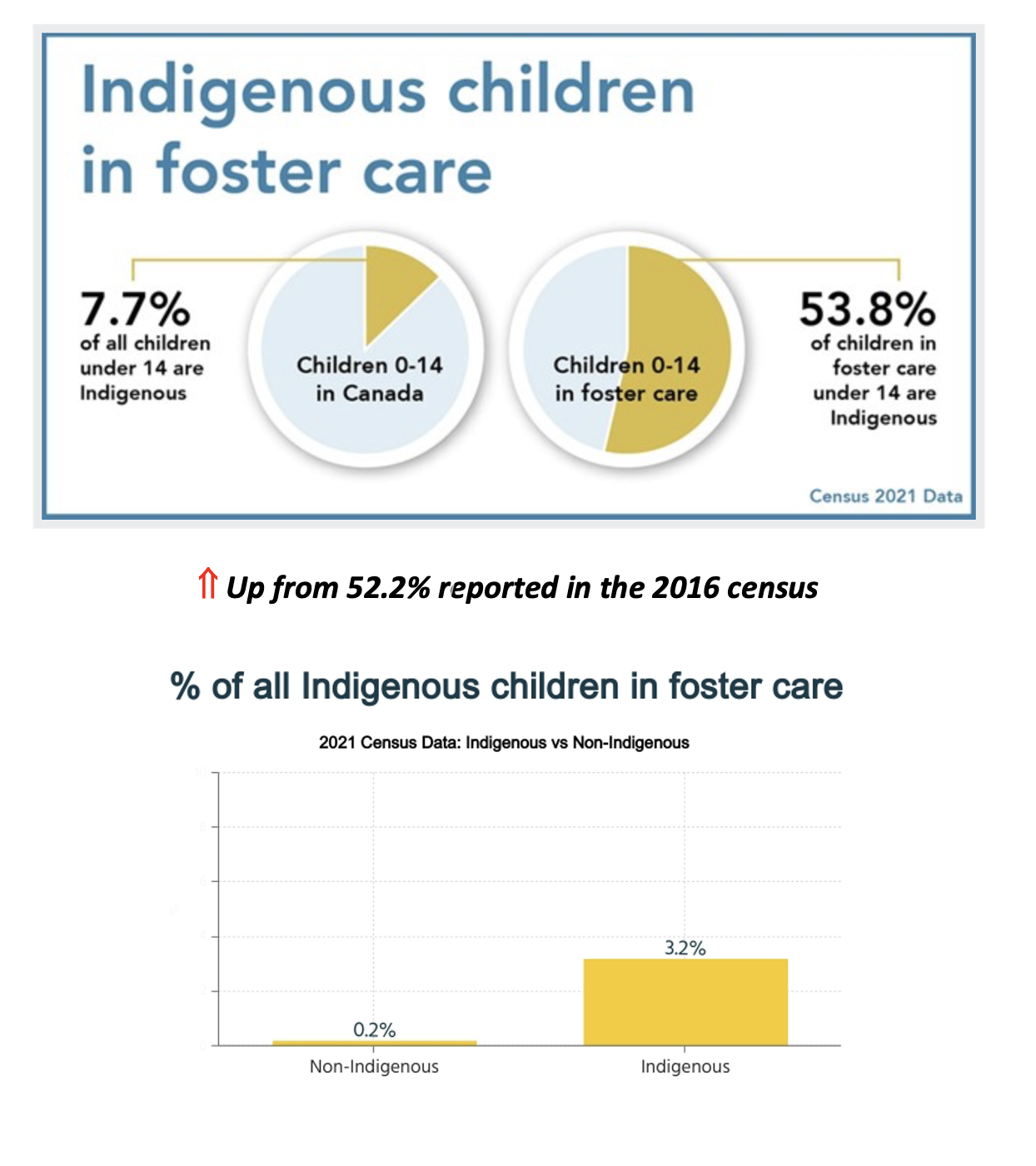
Current Reality
The 2021 census also found that 3.2 per cent of Indigenous children in Canada were in foster care, compared to just 0.2 per cent of non-Indigenous children in Canada.
Indigenous children accounted for more than half of all children in foster care, at 53.8 per cent, despite representing only 7.7 per cent of children 14 and under in Canada.
Feb. 9, 2024: Supreme Court – Friday’s ruling affirms First Nation, Inuit and Métis self-government and jurisdiction over their child welfare services. In a unanimous decision, the court said the “The act as a whole is constitutionally valid. “The essential matter addressed by the Act involves protecting the well-being of Indigenous children, youth and families by promoting the delivery of culturally appropriate child and family services and, in so doing, advancing the process of reconciliation with Indigenous peoples.”
Progress on reducing the overrepresentation of Indigenous children in care can be viewed through three distinct lenses: Federal, Provincial and the Candian Human Rights Tribunal.
Federal Actions
July 10, 2024: The federal government is on the cusp of reaching a major agreement with First Nations organizations that could see Ottawa spend more than double what it planned two years ago, with a projected $47.8-billion earmarked for First Nations child-welfare reforms. (See Call to Action # 1)
April 16, 2024: Budget 2024 proposes $1.8 billion over 11 years, starting in2023-24 to support communities in exercising jurisdiction under An Act respecting First Nations, Inuit and Métis children, youth and families, including the first Inuit agreement to support community-led, prevention-based solutions to reduce the number of children in care. Budget 2024 proposes to provide $167.5 million over two years, starting in 2023-24, to ensure Inuit children can access the health, social, and educational services they need, when they need them.
Provincial Actions
May 2, 2024: Québec court authorizes off reserve class-action lawsuit againtst the governments of Québec and Canada over discrimination they claim was suffered related to the director of youth protection services and other health and social services.
Feb. 10, 2022: The Court of Appeal of Québec ruled that Bill C-92 “is constitutional, except for ss. 21 and 22(3), which are not”. These sections deal with the right of Aboriginal self-government and the regulation of Child and Family Services. The provincial governments of Alberta, Manitoba and the Northwest Territories also support the Québec appeal and argue that Bill C-92 infringes on provincial jurisdiction
Birth Alerts:
Since Sept. 16, 2019 six provinces have abandoned the use of Birth Alerts to apprehend Indigenous children at birth: BC (Sept. 16, 2019), Ontario (Oct. 15, 2020), Manitoba (June 30, 2020), PEI (Feb. 5, 2021), Saskatchewan (Feb 1, 2021) and New Brunswick (Oct. 29, 2021). Currently, Newfoundland and Labrador, Nova Scotia and Quebec practice birth alerts.
Canadian Human Right Tribunal
Oct. 24, 2023: Judge approves historic $23B First Nations child welfare compensation agreement